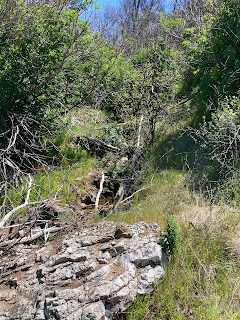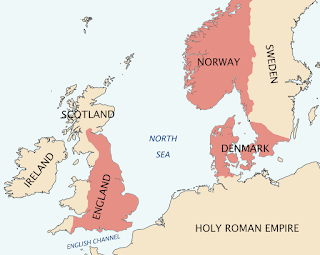It all started with a poster.
Henri Nouwen, Dutch Catholic priest and lecturer at Ivy League universities, was sitting in an office with a colleague having a discussion in 1983. His attention focused on a poster pinned on the door - he confesses he could not take his eyes off it. He asked his colleague what the painting was. "The Return of the Prodigal Son by Rembrandt" they replied.
(Source)
Nouwen described his heart as "leaping" when he saw the painting - he had just come off an exhausting lecture tour and was deeply looking into his own life and future directions. The painting spoke to him in ways that he did not fully comprehend: "I could not take my eyes away. I felt drawn by fhe intimacy between the two figures, the warm red of the man's cloak, the golden yellow of the boy's tunic, and the mysterious light engulfing them both. But, most of all, it was the hands - the old man's hands - as they touched the boy's shoulders that reached me in a place I had never been reached before."As luck would have it, two friends were traveling to the then-Soviet Union at that time which would include a trip to Leningrad (now St. Petersburg) in which the Hermitage Museum was located, where the original painting was - would be interested in going? Of course, Nouwen said, and so soon after he found himself with an unexpected once in a lifetime opportunity to view the painting (and it is huge: 8’ x 6')- not just as a tourist walking through, but behind the velvet rope in a chair, where he could sit and look at the painting for hours and see how perspective changed with the daylight:
"The painting was exposed in the most favorable way, on a wall that received plenty of natural light through a large window at an eighty-degree angle. Sitting there, I realized that the light became fuller and more intense as the afternoon progressed. At four o'clock the sun covered the painting with a new brightness, and the background figures - which had remained quite vague in the early hours - seemed to step out of their dark corners. As the evening drew near, the sunlight grew more crisp and tingling. The embrace of the father and son became stronger and deeper, and the bystanders participated more directly in this mysterious event of reconciliation., forgiveness, and inner healing. Gradually I realized that there were as many paintings of the Prodigal Son as there were changes in the light, and, for a long time, I was held spellbound by this gracious dance of nature and art."
Returning from this trip and having decided that he would spend the rest of his life at L'Arche, a community for the developmentally disabled in Toronto, Canada, Nouwen bought a copy of the painting and hung it up. It became something he looked at and thought about often as he began a process of re-examining his life and calling, and became something that he spoke of often: "The more I spoke of the Prodigal Son, the more I came to see it as, somehow, my personal painting, the painting that contained not only the heart of the story that God wants to tell me, but also the heart of the story that I want to tell to God and God's people. All of the Gospel is there. All of my life is there. All of the lives of my friends are there. The painting has become a mysterious window through which I can step into the Kingdom of God".
As Nouwen continued to think, pray, meditate, and write on the painting he started out where most of us do, of course, seeing himself as the younger son who, after a life of dissolute living, returns to the father for forgiveness and healing. But then a friend suggested to him one day "I wonder if you are not more like the elder son". This opened up new vistas internally for him, as he looked at how he had been "a dutiful son" and had yet become hardened and resentful. But after that revelation came a third , again presented by a friend: "Whether you are the younger son or the elder son, you have to realize that you are called to become the father."
In all my years of hearing sermons on this (and I have heard many), this was new perspective.
From Nouwen:
"Sue did not give me the change to protest: "You have been looking for friends all your life; you have been craving for affection for as long as I have known you; you have been interested in thousands of things; you have been begging for attention, appreciation, and affirmation left and right. The time has come to claim your true vocation - to be a father who can welcome his children home without asking them any questions and without wanting anything from them in return. Look at the father in your painting and you will know who you are called to be. We, at Daybreak (the community he serves in Toronto), and most people around you don't need you to be a good friend or even a kind brother. We need you to be a father who can claim for himself the authority of true compassion."
For Nouwen, a chance meeting with the print and a painting had become a window into not only the needs he knew and did not know for repentance, but a window into his true calling.




















































